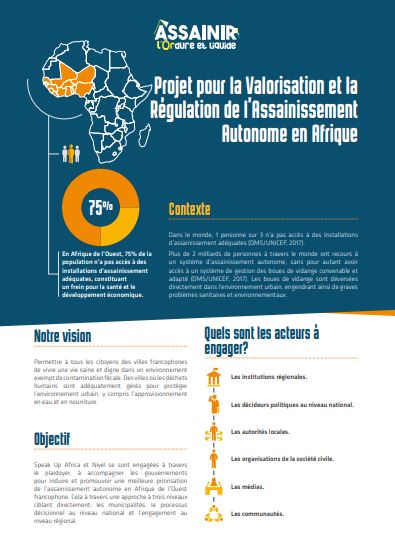2.3 billion people around the world lack access to basic sanitation facilities such as toilets or latrines (WHO, 2017). 892 million of these people still practice open defecation, particularly in gutters, behind bushes or in bodies of water (WHO, 2017). A lack of sanitation hinders socio-economic development and burdens public health.
In West Africa, more than 75% of the population live without access to an adequate sanitation infrastructure, and faecal sludge flows out directly into the urban environment without being treated first. African cities are facing rapid expansion due to a rural exodus and the growing population; providing adequate sanitation services and facilities therefore presents a significant challenge to authorities.
The Project for the Development and Regulation of Autonomous Sanitation in Africa (WASPAA) aims to enable all citizens of French-speaking cities to lead healthy, dignified lives in an environment free from faecal contamination. When human waste is properly managed in cities, the urban environment is protected, including food and water supplies.
Speak Up Africa and Niyel are committed, through their advocacy activities, to guide governments and help them to bring about and promote better prioritization of on-site sanitation in French-speaking regions of West Africa. Through a three-level approach, this directly targets local governments, national decision-makers and engagement at a regional level.

